Daily Current Affairs and GK | 12 December 2020

Main Headlines:
- 1. In a US-brokered deal, Israel and Morocco agreed to normalize their relations.
- 2. As per a report, international legal wildlife trade increased by 2000% since 1980.
- 3. Virtual Global Climate Summit on fifth anniversary of Paris Climate Agreement addressed by PM Modi.
- 4. Joe Biden and Kamala Harris- Time’s Magazine 2020 Person of the Year.
- 5. India’s first indigenous mRNA vaccine candidate, HGCO19, gets approval to start Phase 1 and 2 human clinical trials.
- 6. 9th Sustainable Mountain Development Summit (SMDS-IX) started in Dehradun.
- 7. International UNICEF Day: 11 December
- 8. International Day of Neutrality: 12 December
- 9. International Universal Health Coverage Day: 12 December
- 10. Bajrang Punia and Elavenil Valarivan win Sportsperson of the Year awards in their respective categories at FICCI India Sports Awards 2020.
- 11. 5th India- Myanmar Bilateral Meeting on Drug Control Cooperation held virtually.
Happy February get 35% Off
Use Coupon code FEB26
Topic: International News
1. In a US-brokered deal, Israel and Morocco agreed to normalize their relations.
- In a deal brokered by the United States, Israel and Morocco agreed to normalize their relations.
- Morocco becomes the fourth Arab country to end hostilities with Israel. The other three countries are the United Arab Emirates, Bahrain, and Sudan.
- Under the agreement, Israel and Morocco will establish diplomatic relations, resume offices and the direct flight will be started between both countries.
- As per the agreement, the US will accept Morocco’s sovereignty over Western Sahara. It is a disputed area between Morocco and Algeria.
- The United States will be the only western nation to recognize the sovereignty of Morocco over Western Sahara.
- Morocco:
- It is located in the northern part of Africa.
- It shares a boundary with the Mediterranean Sea, Algeria, Western Sahara, and the Atlantic Ocean.
- Rabat is the capital and the Moroccan dirham is the currency of Morocco.
- Saadeddine Othmani is the Prime Minister of Morocco.
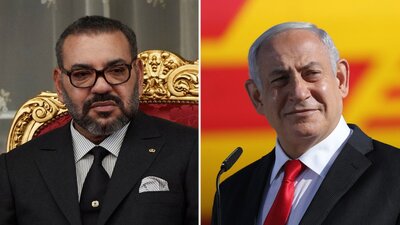
(Source: BBC)
Topic: Environment and Ecology
2. As per a report, international legal wildlife trade increased by 2000% since 1980.
- According to a report of the Intergovernmental Science-Policy Platform on Biodiversity and Ecosystem Services (IPBES), international legal wildlife trade has increased around 2000% in the last four decades.
- The legal wildlife trade has increased by 500% since 2005.
- The lack of regulation, globalization of trade routes and poverty have made legal trade unsustainable for the future.
- The report has found that:
- The European Union and the United States are the main consumers of the legal wildlife trade.
- China’s middle class is involved in the legal wildlife trade for food and medicine.
- North America, Europe and some parts of Asia are net importers and consumers of the wildlife trade.
- The United States is the largest importer of legally traded wildlife.
- Convention on International Trade in Endangered Species of Wild Fauna and Flora has played a crucial role in the regulation of international legal trade in wildlife.
- CITES has reduced the wildlife trade and promoted captive-breeding, wildlife farming as an alternative to wild capture.
- The main drawback of CITES is that it doesn’t cover the trade of fisheries and forestry resources.
- The main purpose of the wildlife trade is for food, leather, fur and traditional medicines.
- Wildlife farming has increased worldwide and it has reduced the hunting of wildlife. Captive-breeding may increase consumer demand and can create illegal trade of wildlife.

(Source: Down to earth)
Topic: Environment and Ecology
3. Virtual Global Climate Summit on fifth anniversary of Paris Climate Agreement addressed by PM Modi.
- Virtual Global Climate Summit on the fifth anniversary of the Paris Climate Agreement was addressed by PM Modi today.
- The summit named Climate Ambition Summit 2020 is being co-hosted by UK, UN, and France in partnership with China and Italy.
- While informing about this news, Environment Minister Prakash Javadekar told some facts. They are given below:
- Historically, the share of USA, Europe, China and India in CO2 emissions has been 25%, 22%, 13% and 3%.
- India currently contributes only 6.8 % of global emissions and it’s per capita emissions are only 1.9 tonnes per capita.
- India has only 2.4% of the world’s land area and 17% of the population.
- India has preserved 8% of the world’s biodiversity and 24.56% of forest cover.
- India had committed to reduce the emission intensity of GDP by 33 to 35% by 2030. India has already achieved 21 % of it and the remaining will be achieved in the next 10 years.
- Environment Minister also talked about Climate Transparency Report 2020. As per the report, India is the only G20 country to meet its commitments. The report was earlier known as Brown to Green Report.
- Paris Climate Agreement:
- Paris Climate Agreement is legally binding. It was adopted by 196 Parties at COP21 in Paris on 12 December 2015.
- It came into force on 4 November 2016. It is an initiative of the UN Framework Convention on Climate Change (UNFCCC).
- COP 26 to UNFCC will take place from 1-12 November 2021 in Glasgow, Scotland, UK.
- Its objective is to limit the rise in global average temperature to below 2°C above pre-industrial levels.
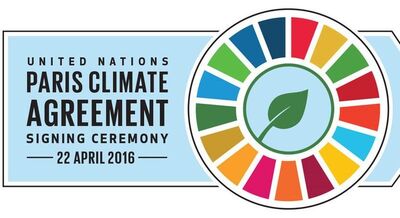
(Source: News on AIR)
Topic: Awards and Prizes
4. Joe Biden and Kamala Harris- Time’s Magazine 2020 Person of the Year.
- Time magazine has jointly named U.S. President-elect Joe Biden and Vice President-elect Kamala Harris as 2020 Person of the Year.
- Kamala Harris will become the first woman, first African American, and first Asian American Vice President of U.S.
- The 45th U.S. President Donald Trump was named Time’s 2016 Person of the Year.
- Recently, Indian-American Gitanjali Rao was named first-ever Time’s Kid of the Year.
- Time’s Person of the Year:
- An individual or multiple people can be named as The Person of the Year.
- The tradition of naming The Person of the Year by Time began in 1927.
- Charles Lindbergh was the first person to receive this title in 1927.
- Mahatma Gandhi was named the Person of the Year in 1930.
- In 2019, teenage climate activist Greta Thunberg was named the Time’s Magazine Person of the Year. She became the youngest individual winner of the title.
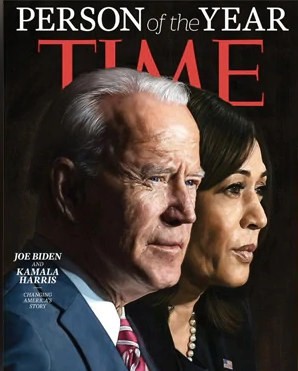
(Source: News on AIR)
Topic: Biotechnology and Diseases
5. India’s first indigenous mRNA vaccine candidate, HGCO19, gets approval to start Phase 1 and 2 human clinical trials.
- India’s first indigenous mRNA vaccine candidate, HGCO19, has got approval to start Phase 1 and 2 human clinical trials.
- Gennova Biopharmaceuticals Ltd, Pune, has developed HGCO19. Ind-CEPI mission has supported HGCO19 with a grant.
- HGCO19 has been successfully tested in mice and non-human primates. Gennova worked with HDT Biotech Corporation, Seattle, USA, for the development of HGCO19.
- mRNA (messenger RNA) vaccines provide immunity by making proteins in the body through the synthetic RNA of the virus. Their fast developmental timeline makes them ideal for addressing the pandemic.
- They can be manufactured quickly and inexpensively under cGMP (Current Good Manufacturing Practice) conditions. So, they can be made available and accessible for mass vaccination.
- They are safe, non-infectious, non-integrating and degradable by standard cellular mechanisms.
- Ind-CEPI (India Centric Epidemic Preparedness through Rapid Vaccine Development) mission is being implemented by the Department of Biotechnology, Ministry of Science and Technology.
- Coalition for Epidemic Preparedness Innovations (CEPI) is a foundation. Its purpose is to fund vaccine development. It was founded in January 2017.
- Its founders are India, Norway, Bill and Melinda Gates Foundation, The Wellcome Trust and World Economic Forum (WEF).
- Different types of COVID-19 vaccines are underdevelopment, including:
- Inactivated or weakened virus vaccines: Inactivated or weakened virus is used so it doesn’t cause disease, but still generates an immune response.
- Protein-based vaccines: Harmless portions of proteins or protein shells are used that imitate the COVID-19 virus to safely generate an immune response.
- Viral vector vaccines: Genetically engineered virus is used so that it can’t cause disease but produces coronavirus proteins to safely generate an immune response.
- RNA and DNA vaccines: Genetically engineered RNA or DNA is used to generate a protein that itself safely prompts an immune response.
Topic: Summits/Conferences/Meetings
6. 9th Sustainable Mountain Development Summit (SMDS-IX) started in Dehradun.
- 9th Sustainable Mountain Development Summit (SMDS-IX) has started in Dehradun on 11 December 2020.
- The summit will continue till 14 December 2020. Its theme is Emerging Pathways for Building a Resilient Post COVID-19 Mountain Economy, Adaptation, Innovation and Acceleration.
- Sustainable Development Forum Uttaranchal (SDFU) is hosting SMDS-IX
- SMDS is an annual flagship event of Integrated Mountain Initiative (IMI). SMDS-I was held in 2011 in Nainital. SMDS VIII was held in Shillong, Meghalaya.
- IMI is a network platform working for concerns of the Indian Himalayan Region and its people. It is led by civil society.
Topic: Important Days
7. International UNICEF Day: 11 December
- Every year on 11 December International UNICEF day is celebrated to mark the establishment of this organisation on the same day in 1946.
- United Nations Children’s Fund (UNICEF):
- It is a United Nations agency that was created on 11 December 1946 as United Nations International Children’s Emergency Fund.
- Headquarters: New York City, United States
- Executive Director: Henrietta H Fore
- It works for the overall development of children globally and promote policies for the child protection and inclusion.
8. International Day of Neutrality: 12 December
- On 12 February 2017, United Nations General Assembly declared 12 December as the International Day of Neutrality.
- Article 2 of the UN charter asks member states to settle their disputes in a peaceful manner.
- The principle of neutrality refers to non-participation of a party in an armed conflict.
- The policy of neutrality contributes to the strengthening of peace and security at the global level. It helps in developing peaceful, friendly and mutually beneficial relations between the various countries.
- “Preventive diplomacy” means diplomatic action taken to prevent disputes from turning into conflicts and to control the spread of conflicts whenever they occur.
9. International Universal Health Coverage Day: 12 December
- On 12 December 2012, the United Nations General Assembly adopted a resolution urging countries to quickly move towards achieving the goal of Universal health coverage.
- Universal health coverage (UHC) refers to access to quality, affordable healthcare to everyone and everywhere as an essential priority.
- On 12 December 2017, the United Nations declared 12 December as International Universal Health Coverage Day (UHC Day).
- International Universal Health Coverage Day aims to create awareness of the need for resilient health systems and universal health coverage for all.
- Theme 2020: Health for All: Protect Everyone — To end this crisis and build a safer and healthier future, we must invest in health systems that protect us all — now.
Topic: Sports
10. Bajrang Punia and Elavenil Valarivan win Sportsperson of the Year awards in their respective categories at FICCI India Sports Awards 2020.
- Bajrang Punia and Elavenil Valarivan win Sportsperson of the Year awards in their respective categories at FICCI India Sports Awards 2020.
- Anil Kumble’s enterprise, Tenvic Sports, won ‘Best Company Promoting Sports (Private Sector)’ award.
- Wrestling Federation of India and Paralympic Committee of India were together declared the best national sports federation.
- Sundar Singh Gurjar and Simran Sharma won the best para-athlete award. Radhakrishnan Nair of athletics won the coach of the year award. Madhya Pradesh has won Best State Promoting Sports Award.
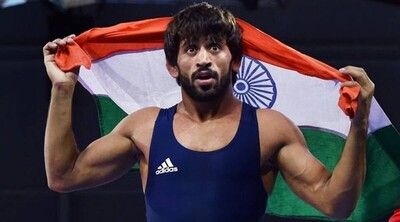
(Source: Indian Express)
Topic: International News
11. 5th India- Myanmar Bilateral Meeting on Drug Control Cooperation held virtually.
- 5th India- Myanmar Bilateral Meeting on Drug Control Cooperation held virtually on 10 December 2020.
- Director-General Narcotics Control Bureau, Rakesh Asthana, led the Indian delegation for the meeting held between the Narcotics Control Bureau, India and the Central Committee on Drug Abuse Control, Myanmar.
- He talked about the trafficking of Heroin and Amphetamine Type Stimulants (ATS) in India. Growing threat of the production of Yaba tablets (methamphetamine) was also discussed in the meeting.
- In the recently released Smuggling in India report, Ganja and Charas were at first place in the list showing the quantity of various substances seized under NDPS Act in 2019-20. Opium was in second place.
- Both countries agreed for the timely exchange of intelligence information to conduct follow-up investigations in drug seizure cases. They also agreed to Border Level Officers/Field Level Officers meetings on a regular basis.
- Porosity of the India-Myanmar border was already a challenge in dealing with drug trafficking. Now, drug trafficking through the maritime route in Bay of Bengal has emerged as a new challenge.
- 6th India - Myanmar Bilateral Meeting on Drug Control Cooperation in India will be held in 2021.
- Indian constitutional provisions, laws, agencies and UN conventions for the prohibition of narcotic drugs in India:
- Indian constitutional provisions:
- Article 47 under Directive Principles of State Policy provides for prohibition on harmful and non-medicinal consumption of drugs in India.
- Drugs are placed under the Concurrent list under 7th schedule of Constitution. However, the cultivation, manufacturing or sale of opium for export purposes is placed in Union List. Only center can legislate in this respect.
- Indian constitutional laws and agencies:
- Narcotic Drugs and Psychotropic Substances Act, 1985 (NDPS Act) prohibits narcotic drugs and psychotropic substances in India, for any purpose other than medical or scientific.
- Multiple agencies enforce NDPS Act. Some of them are DRI, Police, Narcotics Control Bureau (NCB), Central Bureau of Investigation, Central Bureau of Narcotics (CBN) and National Investigation Agency (NIA).
- In 2016, a Narcotics Coordination Centre (N-CORD) was established. Central Bureau of Narcotics (CBN) comes under Ministry of Finance.
- UN Conventions on Narcotic Drugs:
- India is signatory to three UN Conventions related to narcotic drugs and psychotropic substances.
- They are 1961 Single Convention on Narcotic Drugs, the 1971 Convention on Psychotropic Substances and the 1988 Convention against Illicit Traffic in Narcotic Drugs and Psychotropic Substances.
- Indian constitutional provisions:
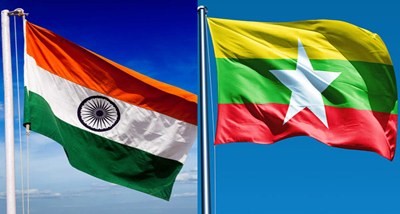
(Source: News on AIR)





 11 December 2020 Current Affairs
11 December 2020 Current Affairs 








Comments